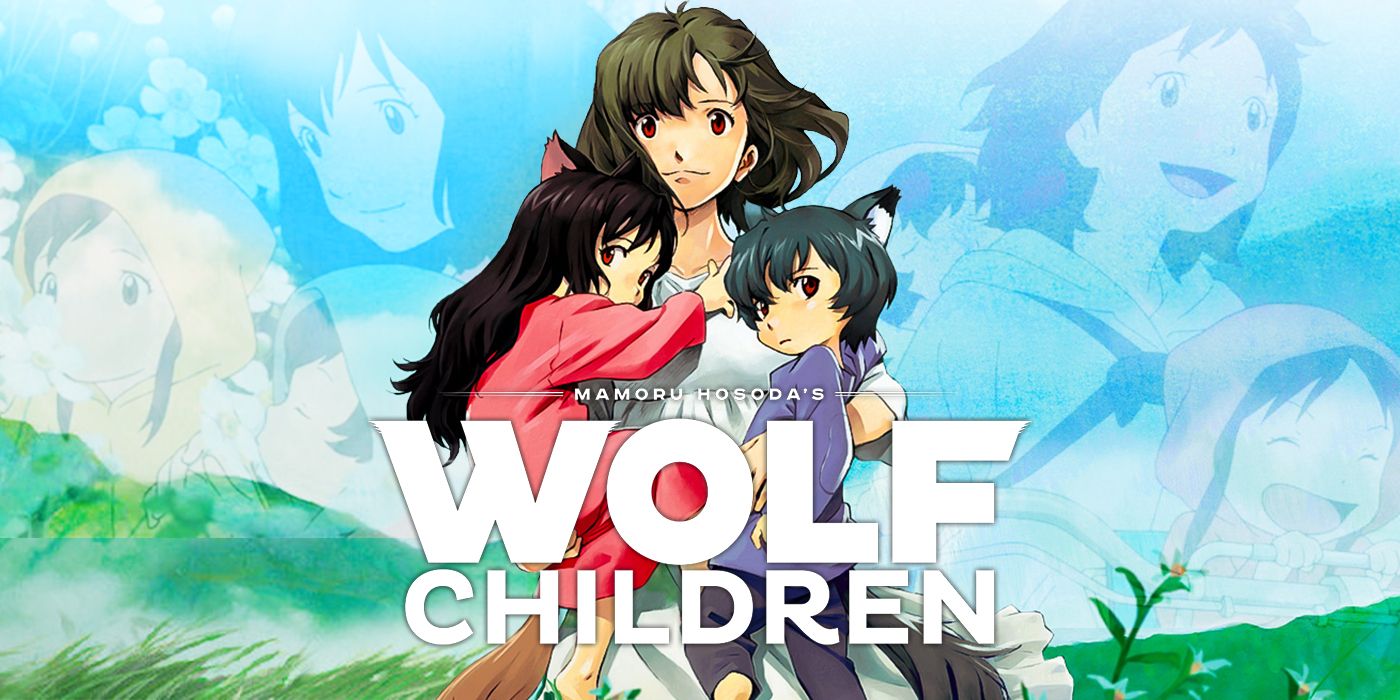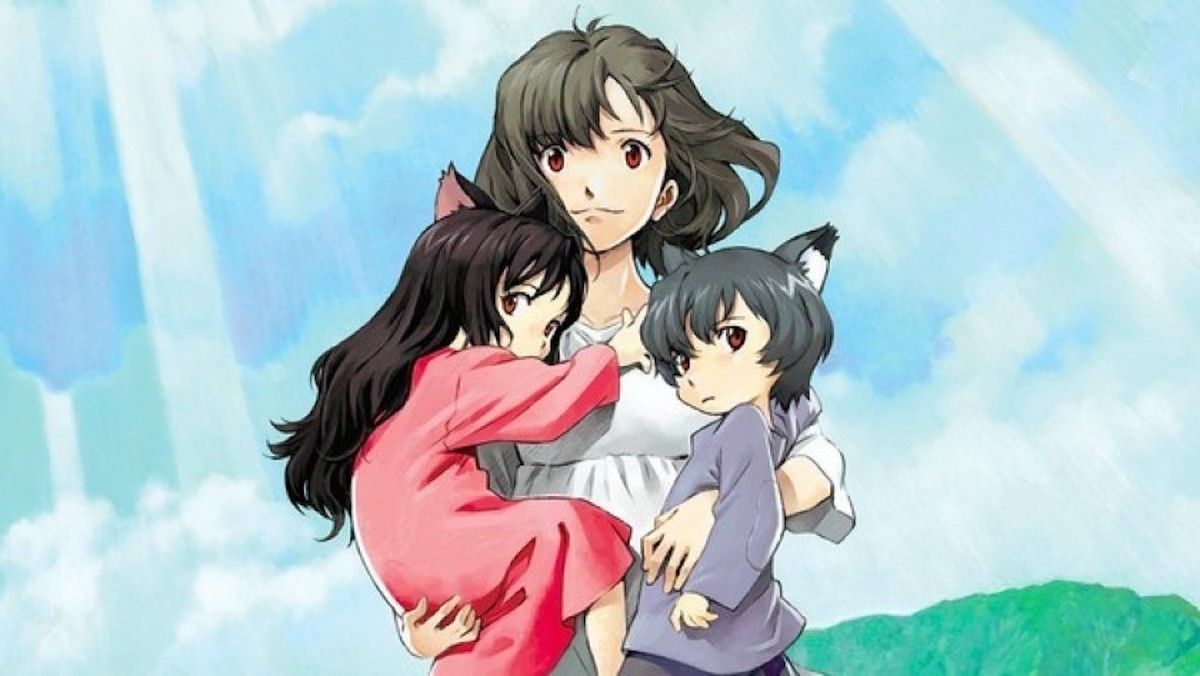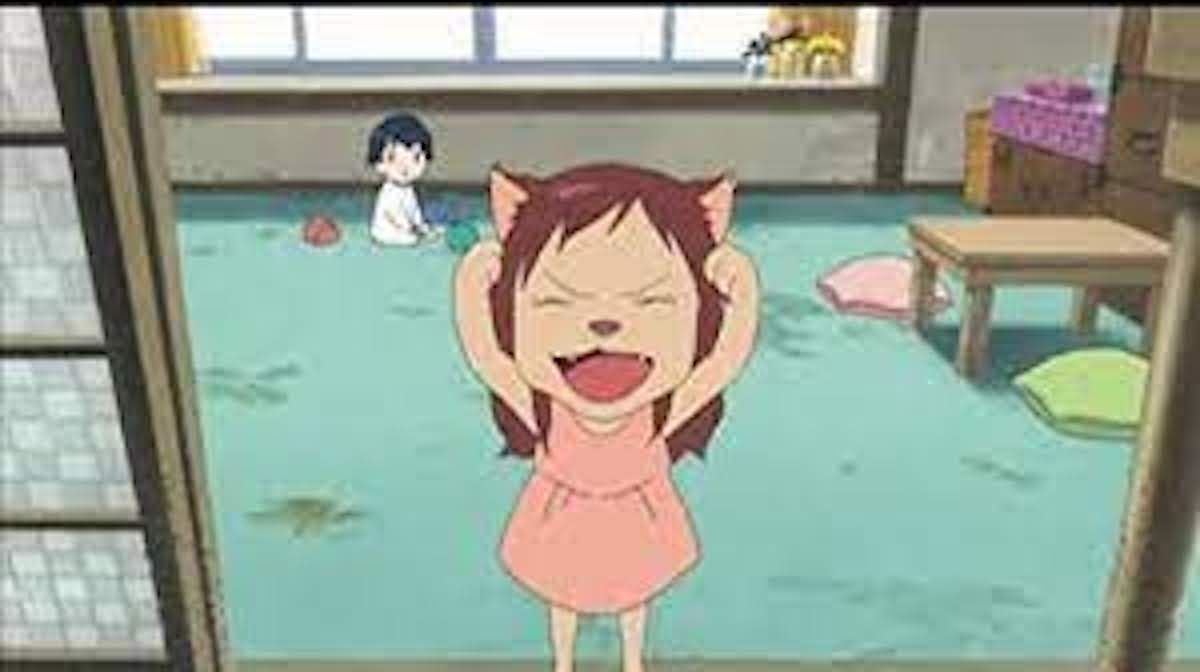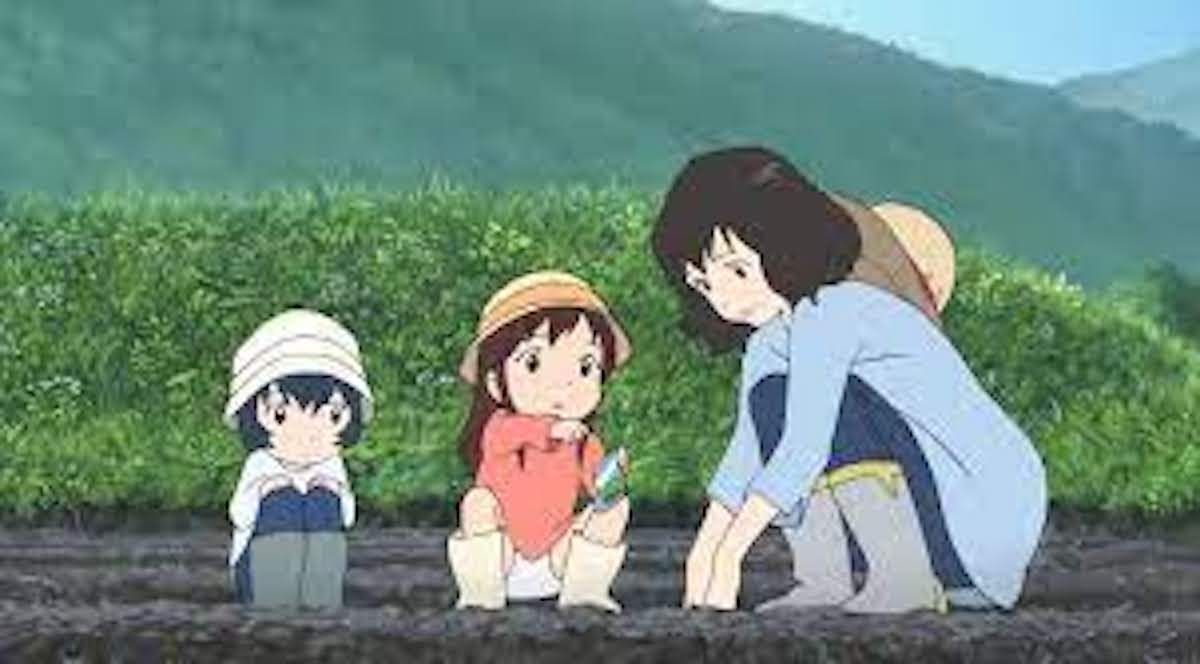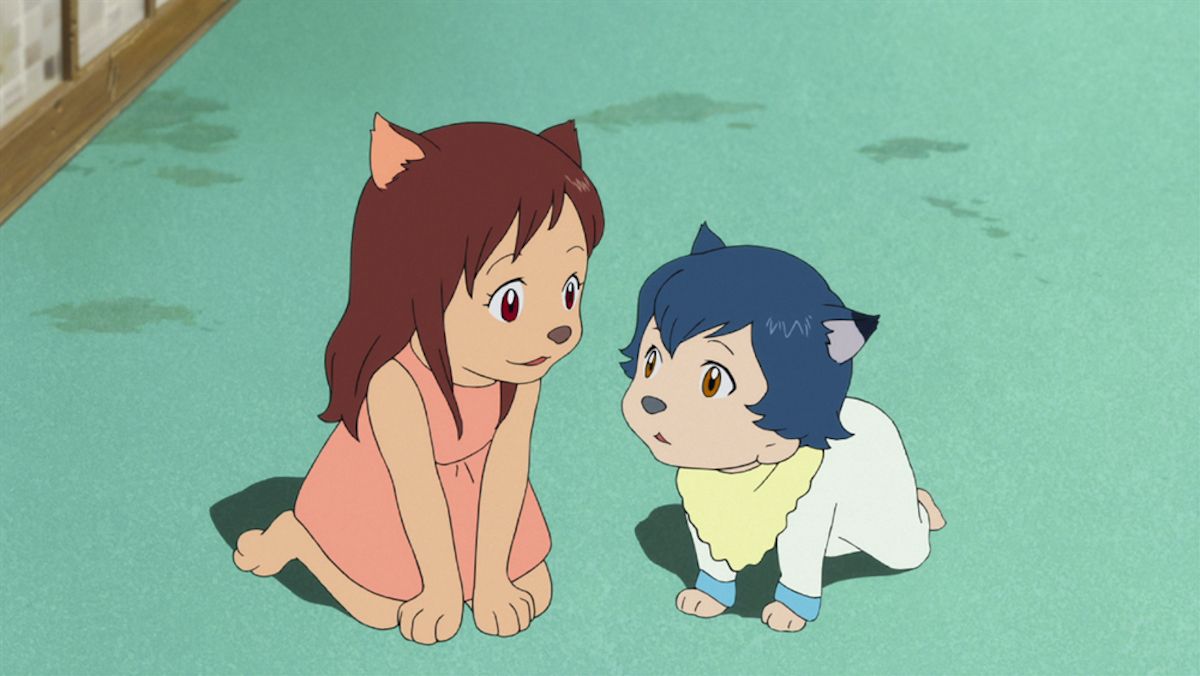You don't have to be a huge fan of Japanese animated films to have heard of Studio Ghibli. They've made some of the most well-known anime films such as Hayao Miyazaki's Spirited Away and Howl's Moving Castle, and they certainly deserve the credit that they have received. However, their popularity can be a double-edged sword as it can lead to the overshadowing of other studios for western audiences. One of these studios that also makes phenomenal anime films is Studio Chizu. This studio is by no means unknown, but it might not be the studio that people think of when initially discussing anime films. In fact, Studio Chizu is still making films to this day, with thStueir most recent film Belle in theaters right now and already nominated for several Best Animated Feature awards! However, today we want to instead talk about their 2012 film Wolf Children and how it gives a strong depiction of a single mother and how she perseveres through having to raise her two children with a magical twist: her children are werewolves.
It can be easy to forget just how much of a struggle it is to raise children, even in family with the traditional two-parent structure. For Hana (voiced by Aoi Miyazaki/Colleen Clinkenbeard for Japanese and English dubs respectfully) it became even more of a struggle after her partner (Takao Osawa/David Matranga) passed away during what could only be presumed as a hunting accident. Her partner was a werewolf, the last of his kind, and together they had two children, a girl and a boy. Now with two small children to raise and unsure of how to meet their special needs, Hana found herself in a tough situation. The film spends a majority of the runtime showing how she attempts to raise the two wild children while also attempting to hide their secret from the public. One scene that highlights this particularly is when one of the children gets sick after eating a silica packet. While a parent would normally think to simply take their kid to the hospital, Hana finds herself unable to decide whether to take her daughter to the hospital or the vet on the account that her child is half-wolf. Luckily everything ends up being okay, but that is the moment when she starts to realize that there isn't anyone else that she can turn to for help. Her partner passed away before she could ask him about all the nuances of raising a werewolf child. Ultimately, the pressures of the city life prove to be too much for her to take, and Hana decides to take her kids out to live far away in an abandoned rural farmhouse that she learns to renovate herself. From repairing the roof tiles to cleaning the floors to crafting spaces for her children, she single-handedly does everything to support her children and return the home to a livable state.
Eventually, Hana decides to farm the land for vegetables, but finds that the plants keep dying no matter how many times she tries. After a few more futile attempts, she gets help from one of the locals who oversees her work to make sure that the vegetables grow properly. Hana does all the work and listens without any complaints, and that is a theme that is consistent throughout the whole film. Despite the monumental task of not only raising her kids, but also fixing up the home and managing enough of a farm to provide the whole nearby village with potatoes, Hana shows nothing but confidence and resolve to ensure her success. Never once does she back down from the challenges that life throws at her, and ultimately her hard work pays off as both of her children grow up to choose their own way in the world. Her daughter decides to live life as a normal human while her son decides to live as a wolf and protect the mountains of the home they live on.
While nobody should be comparing their efforts towards the Olympic performance that Hana gives, especially when it comes to their ability to raise children, it is heartwarming to have such a positive role model in the field of single parenthood. It is certainly not an easy task, but it is something that many individuals have to deal with in their lives, and that often does not get enough recognition. Anyone who grew up with a single parent knows how much of a struggle that their parent had looking back. The film takes up a similar angle, having the narrator be the daughter Yuki (voiced by Yukito Nishii/Jad Saxton). She is the one who recounts the stories that her mother told her, and they are how the film gives more context to the scenes as they play out. This is another great choice made by the producers, as it is often that we do not understand just how difficult the lives of our parents were until we ourselves are adults recounting the stories of how hectic we made life for our parents.
No single piece of media can fully paint a perfect picture of what to expect out of an individual. Just because Hana is seen to have raised her kids along with tackling various other tasks (such as picking up a job after their savings begin to run out) that doesn't discredit or invalidate how much effort a single parent watching the film might be putting in towards raising their own children. It is important to note the separation between a fictional character and our own reality. While Hana is certainly a positive model towards single parents, the film potentially creates a risky statement by making her so willing to achieve whatever is set in front of her. By making her so successful in accomplishing these goals on her own and having her only failures come from a lack of experience, it may lead towards viewers having unrealistic expectations towards single parents who might be struggling to handle just one child. It is not only important to raise awareness towards the achievements that single parents make but also to be conscious that positive depictions can lead to unrealistic expectations when presented without the notice that challenges are not always as easy to overcome as it may seem in fictional depictions.
Wolf Children is a remarkably beautiful anime film that at best shows how heroic and unbelievably skilled single parents can be and at worst provides an unrealistic standard by which single parents might be judged upon both by their peers and by themselves. As long as we can recognize the struggles and challenges that single parents have to overcome and that this fictional film about a mother raising werewolf children on her own is not necessarily a one to one depiction of life for single parents in our world, then the film tackles these issues very well. Luckily, the format itself and the inclusion of fantasy themes makes that separation easy to achieve. Being a parent is one of the hardest things anyone can do. Being a single parent can feel impossible to do at times. Wolf Children, while perhaps doing its job too well, shows us that it can be done, and it serves as a reminder that many parents will do whatever it takes to make sure their children can get the best lives possible.

